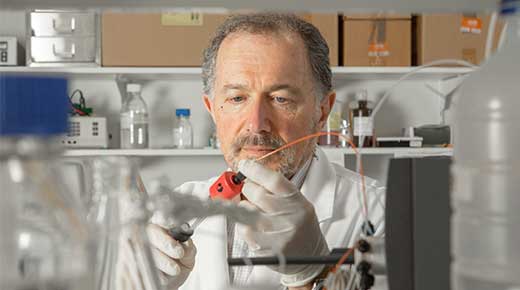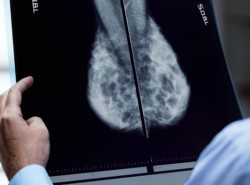
Improving response to chemotherapy in triple-negative breast cancer
Published: 10/10/19 12:21 AM

Robert Baxter
Of the more than 16,000 Australian women diagnosed with breast cancer each year about 15 per cent, 2400 women, have a sub-type of the disease called triple negative breast cancer.
Women with triple-negative breast cancer have less treatment options and poor outcomes compared to women with other type of breast cancer, so there is an urgent need to improve treatment methods.
Chemotherapy is a component of treatment for many types of breast cancer, but it is the only effective treatment for triple negative breast cancer. It is a powerful tool; however it has undesirable side effects and can become less effective over time if tumours develop resistance, causing patients to relapse even if their initial treatment was effective.
Many chemotherapy drugs work by damaging the DNA of the cancer’s cells. Some tumours can reverse the effect of the treatment by repairing the damage and continuing to divide and grow.
A promising approach to treating drug resistance is to prevent the cancer cells from repairing the damage caused by the drug. Professor Rob Baxter and his team have discovered a previously unknown way in which triple-negative breast cancer cells can repair DNA that has been damaged by chemotherapy.
The aim of this project is to learn more about this process and discover how to prevent it. Ultimately, the aim is to develop a new treatment that would allow chemotherapy to work more effectively, improving survival for many women with triple negative breast cancer.
